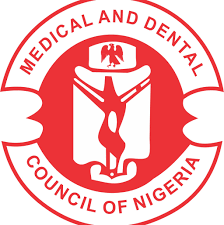The Nigerian healthcare system is buzzing with tension following a bold move by the National Universities Commission (NUC). In January 2025, the NUC announced a major upgrade to degree programs in Pharmacy, Physiotherapy, and Optometry, shifting their nomenclature from bachelor’s degrees to “Doctor” status. While this change aims to align Nigerian universities with global standards by extending these programs to six years and adding clinical training, it has sparked a fierce backlash from the Nigerian Association of Resident Doctors (NARD). Why are doctors so upset, and what does this mean for the future of healthcare in Nigeria? Let’s dive into the controversy shaking up the medical community.
The NUC’s Decision: A Step Toward Global Standards or a Recipe for Chaos?
The NUC’s upgrade means that graduates of Pharmacy, Physiotherapy, and Optometry programs will now be called “Doctors” after completing their six-year degrees, which include enhanced clinical training. On the surface, this seems like a progressive move to elevate the status of these professions and bring Nigeria in line with international practices. However, NARD argues that this decision could have disastrous consequences for an already fragile healthcare system. According to their press release on May 8, 2025, posted on X, the change risks confusing patients, fueling interprofessional rivalry, and even enabling quackery.
NARD emphasizes that clear roles are essential for effective teamwork in healthcare delivery. Patients typically rely on medical doctors for diagnosis and treatment decisions, a distinction reflected in salary structures like the Consolidated Medical Salary Structure (CONMESS) versus the Consolidated Health Salary Structure (CONHESS). Over the past two decades, NARD notes, strikes by other healthcare groups have often centered on demands to match CONHESS with CONMESS, highlighting existing tensions. Adding the “Doctor” title to more professions without public education or structural clarity, they argue, could exacerbate these conflicts and undermine trust within healthcare teams.
Global Practices: What Nigeria Can Learn
NARD points to global examples to support their stance. In countries like the UK and Germany, the “Doctor” title in fields like Pharmacy and Physiotherapy is reserved for those who earn a PhD, not for undergraduate degree holders. Even in nations with advanced healthcare systems, there’s no precedent for pharmacists, physiotherapists, or optometrists in public institutions earning more than medical doctors. This reflects the distinct roles these professionals play—medical doctors often lead diagnosis and treatment, while others provide specialized support. NARD fears that blurring these lines in Nigeria, where the healthcare system already struggles with inefficiencies, could lead to confusion among patients and enable unqualified individuals to exploit the new titles, further endangering public health.
The Bigger Picture: Collaboration Over Competition
The Nigerian healthcare system has long been plagued by interprofessional tensions, as highlighted in a 2015 study on ResearchGate, which noted that the system’s efficiency lags behind countries like Ghana despite similar political structures. Strikes and disputes over salaries and roles have been a recurring issue, with NARD citing two decades of agitation by other health worker groups. The NUC’s decision, while well-intentioned, risks adding fuel to this fire. NARD urges the commission to reconsider and focus on policies that foster collaboration, clarity, and excellence in healthcare rather than creating new points of contention. They argue that all healthcare professionals should take pride in their unique roles, and those aspiring to become medical doctors should follow the established, rigorous pathway.
What’s Next for Nigerian Healthcare?
The debate over the NUC’s nomenclature change is far from over. Responses reflect a mix of opinions—some call the decision “ridiculous” and question its necessity, while others, defend the upgrade, noting that programs like the Doctor of Physical Therapy (DPT) are entry-level in some countries and grant the “Doctor” title. However, the overarching concern remains: without clear communication and structural safeguards, this change could deepen divisions in an already strained system. As Nigeria strives to improve its healthcare delivery, the focus must be on teamwork and systemic improvements, not competition over titles.
The NUC’s decision to upgrade Pharmacy, Physiotherapy, and Optometry degrees to “Doctor” status has ignited a heated debate in Nigeria’s healthcare sector. While the intent may be to elevate these professions, the potential for confusion, rivalry, and quackery cannot be ignored. NARD’s call for reconsideration is a reminder that healthcare thrives on collaboration, not competition. As this controversy unfolds, one thing is clear: Nigeria’s healthcare system needs policies that strengthen unity and trust among professionals to deliver the best care for patients.



